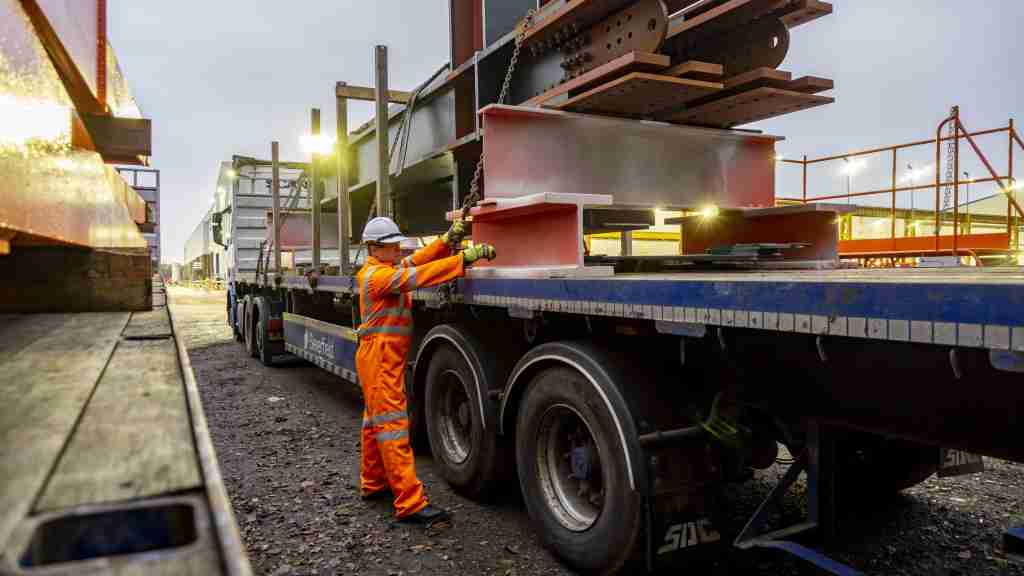New research from Simply Business reveals that the ongoing shortages in supplies and skills have caused UK self-employed tradespeople to lose out on £3.5 billion in total.
We spoke to 250 tradespeople across the country. Of those we surveyed, 83 per cent said that they’ve experienced rising costs for materials, making it the most common challenge that tradespeople are facing.
What’s more, 70 per cent of tradespeople have had to turn down work in the last three months, causing a hit to their finances.
- Three tool theft updates for tradespeople
- What’s causing rising costs and a supply shortage?
- What will be in the upcoming Autumn Budget for small businesses?
- What type of business insurance do I need?
Self-employed tradespeople are facing big losses
The squeeze on supplies and skills is leading to a drop in earnings for tradespeople, because they’re paying more for materials and are having to turn down work:
- UK tradespeople have lost £5,598 each on average
- one in five tradespeople has lost more than £10,000
- 70 per cent of tradespeople we surveyed have had to turn down work in the last three months
- with 801,000 self-employed tradespeople in the UK, this equates to over £3.5 billion lost

Daniel Baldwin, a builder from Basingstoke who works across the South East, warns of a recession due to the shortages: “There is a massive gap in the skilled trades industry in construction. With massive price hikes on materials work is slowing down. This country will be in recession in the next 12 months.”
These challenges are delaying tradespeoples’ post-pandemic recovery
Two thirds of tradespeople said that increased costs and shortages are delaying their post-pandemic recovery, with 70 per cent of tradespeople thinking that it will take over a year for the sector to overcome these challenges.
58 per cent of businesses have previously told us that it would take more than 18 months to recover from the pandemic, so tradespeople will be hoping to see this squeeze end sooner rather than later.
Indeed, there is still optimism – nearly half of tradespeople said that they’re more hopeful about the coming months.
Alan Thomas, UK CEO at Simply Business, comments: “Thankfully, we’ve seen huge waves of resilience among the small business community throughout the pandemic, and it’s encouraging to see over half of tradespeople remain optimistic despite the bleak outlook.”
What’s the most difficult material to get hold of?
60 per cent of tradespeople think timber is the most difficult material to get hold of.
And when it comes to the reasons for the rising costs and shortages:
- one third of tradespeople think that a post-pandemic surge in demand is the most significant reason
- another third blamed the effects of Brexit on imports

What’s the effect on projects?
A huge 87 per cent of tradespeople have been forced to delay projects:
- over a quarter of tradespeople have had to delay projects by four to eight weeks
- one in six tradespeople has delayed projects by more than three months
We’ve also heard individual stories about these problems. One tradesperson said that the price of timber increased by £5,000 between leaving the depot and arriving at the yard. That tradesperson said that the costs are inevitably passed down to them, and then unfortunately to the consumer: “I would like clients to understand that a price rise is only due to high materials cost”.
Another tradesperson said that they had to let some of their employees go because of the impact of supply shortages, and another still said that they’ve been forced to effectively shelve their business and turn to freelancing.
What do you think about rising costs and shortages? Let us know in the comments below.
Are you protecting your trade?
As the UK’s biggest business insurance provider, we specialise in public liability insurance and protect more trades than anybody else. Why not take a look now and build a quick, tailored tradesman insurance quote?

This block is configured using JavaScript. A preview is not available in the editor.